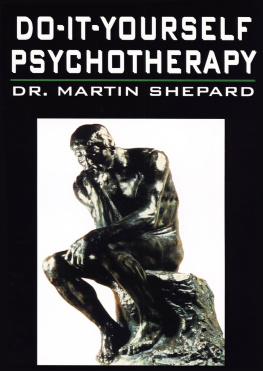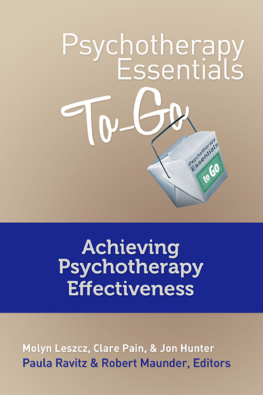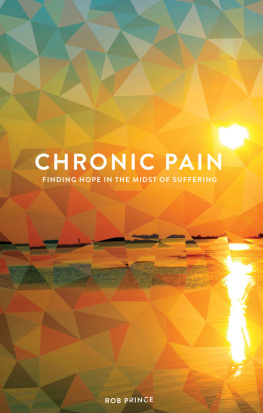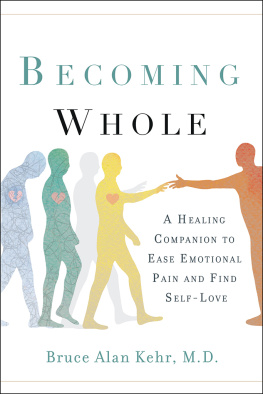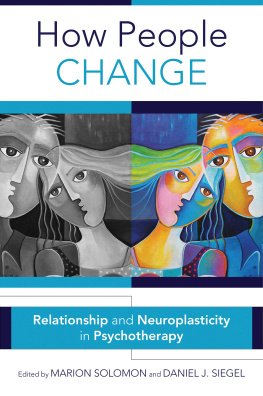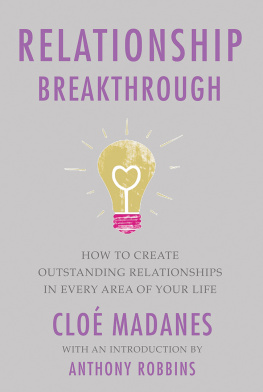Table of Contents
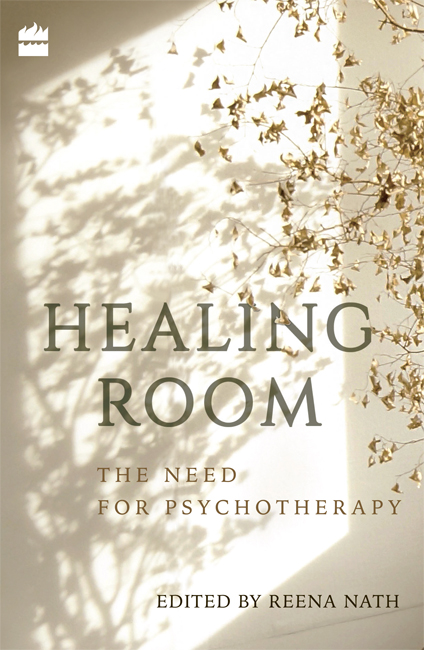
Healing Room
The Need for Psychotherapy
Edited by
REENA NATH

CONTENTS
P eople I meet outside the therapy room sometimes get nervous around me. Am I being analysed right now? they will ask, before taking a step back. What they really mean is Are you reading my mind?
No. That would be telepathy.
It has been well over a hundred years since psychology was widely accepted as a scientific discipline and yet mental health professionals are still regarded with suspicion. Shamanism is in the mix. Quackery, head-shrinking, countless jokes involving a couch, dream interpretation, penis envy, Oedipal complexes and madness. We dont trust what we dont understand.
And that is alright. This book will tell you what therapists do.
Trust takes time. It is a two-way street and it has to be earned. Sure, it is always a little act of faith to trust someone, whether it is your cardiac surgeon or the mechanic you leave your car with, but transparency goes a long way in establishing that trust. In moving past the doubts, the fears, and encouraging us to use those four words that all healing begins with: I need your help. Because to reach out is to be human.
This books purpose is three-fold. Firstly, it provides information for any reader who wants to make an informed choice before starting therapy. Secondly, it is a reader for persons interested in psychotherapy that is available in India. Lastly, it serves as documentation of the work and practise of Indian psychotherapists for a wider audience.
Interest in psychological issues is not a recent phenomenon in India (Neki, 1975). Academic writing, as in the Indian Journal of Psychiatry, has also been consistently growing since the middle of the last century. Outside the small community of mental health professionals, however, interest in psychological health has been miniscule.
The subject of mental illness has been taboo and mentally ill people have been routinely discriminated against. This attitude has been observed in families and communities, and mirrored in public policies. Allocation of state resources has not been reflected in the large number of people needing psychiatric or psychological help. Even if a person did not have a major mental illness, but showed emotional vulnerabilities, there was very little understanding and support available, let alone treatment.
The good news is this condition of neglect seems to be changing. For instance, the incidents of suicide among students, abused women, impoverished farmers and other vulnerable groups have been repeatedly highlighted in the media over the last few decades. Not being able to cope is less of a reason to feel ashamed and more of a reason to find a solution. The idea of over-stress as the cause of ill-health, physical and emotional, has been taken on board by doctors, teachers, yoga instructors, gurus, corporate trainers, personnel managers and everyones aunt. The demand for well-functioning people is greater than it has ever been in human history.
There is also a growing understanding that relational health impacts people, that the presence of loving and nurturing people in ones life cannot be taken for granted. It was believed that having a family was a sufficient guarantee for an individual to flourish at work and at home. This belief, this certainty, is being questioned by the number of lives shattered by the trauma caused by sexual abuse committed by family members, the stress of conflict-ridden relationships within the family, by domestic violence against women, children and the elderly.
In India, there is a new demand for understanding psychological processes, for explanations of how a person comes to have problems and, more importantly, how to get well again. Who does one go to when troubled? What can psychotherapy offer? How does one find a therapist? What type of therapy should one choose? These are the questions that this book can answer.
The First Question Is: What Is Psychotherapy?
Psychotherapy is a service for people to help them resolve their emotional, psychological and relationship issues. It tries to understand the problem, its causes and its impact on the person and on their life. A persons problems can range from situational difficulties that require short-term therapy to relationship breakdowns that require longer periods of therapy. Whatever the length of the treatment, the goal is alleviation of pain and sorrow, and beyond that is self-growth, the ability to choose ones path in life with greater clarity and acquiring the confidence to cope with future problems.
Psychotherapy is referred to as the talking cure as it is through a dialogue between the psychotherapist and the seeker of help, called the client, that positive change is made. The main form of communication is talking together about the clients life, including all parts of the clients lived experience. The psychotherapist uses evidence-based interventions to foster long-term recovery, increased resilience and well-being.
Psychotherapy is sometimes called counselling or simply therapy, and the psychotherapist can be referred to as a counsellor or a therapist. The therapist does not direct the seeker of help; instead they facilitate dialogue so that the person can find their own answers. The therapist uses their training in psychological processes, knowledge and experience to do this.
In my early professional years I was asking the question: how can I treat, or cure, or change this person? Now I would phrase the question in this way: how can I provide a relationship which this person may use for their own personal growth? said the American psychologist, Carl Rogers.
Healing in psychotherapy happens in the context of a trusting relationship with the psychotherapist. The quality of attention, the close listening to the speaker for what is being said and what is left unsaid, the acceptance of the person as they are, the respect offered these are the building blocks of the therapeutic experience. Through this relationship, the person in distress begins to open up to all the aspects of their experience, to understand themselves better, gain insight into their own emotional reactions, thought processes and belief systems. The clients capacity to live as they wish increases through changes they bring about in themselves and in the circumstances of their lives.
The most important aspect of therapy is confidentiality. The therapist ensures that whatever is spoken about remains confidential between them and the client, and never revealed to an outsider. The client is free to disclose the conversation with whomsoever they wish, but the therapist is ethically bound to keep it confidential.
The Next Question That Arises Is: Do We Need Psychotherapy?
Psychotherapy is a modern term, but the need for assuaging human grief, unhappiness and fear has existed as long as humans have walked the earth. The human mind has always been prey to external and internal trauma, causing emotional suffering and mental illness. Healers and healing have existed as long as has human misery, evolving in understanding over the ages as civilization evolved. Before modernity created a split between spiritual healing and bodily healing, resulting in the separate institutions of religion and medicine, healers worked with the body, mind and spirit in multiple ways. An important part of the work of ancient healing practitioners was to listen, see, touch, recognize and feel with the person seeking help. The healer would create a safe place for the healing to happen and give the sufferer the dignity and respect that comes with being given special care. These traditional practices still exist in parts of India and the world. This is not to say that there wasnt cruel treatment for people suffering from mental illness by groups of people.


